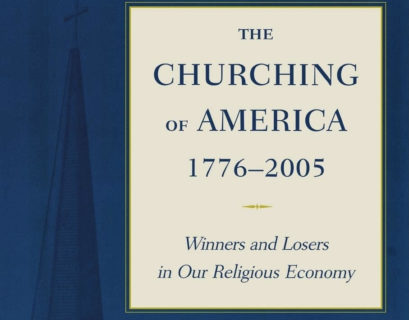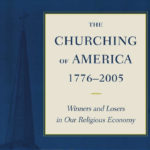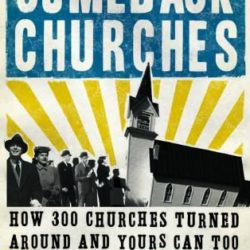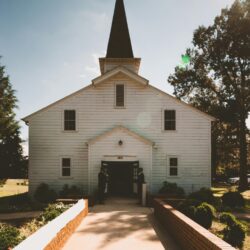Written By Joe Epley
“My house will be a place where people gather to know about God.”
Rocky Alvarez, son of the late pastor Rochester Alvarez, recently recounted his father’s work as a minister and church planter in a phone interview. He recalled with fondness the radical change in his father’s life that came from his decision to follow Christ and the impact that decision made for the kingdom of God. Rocky grew up watching his father grow in his faith and planting 69 churches on three continents as far north as Canada and as far south as Brazil.
Rochester Alvarez migrated to the United States from El Salvador in the late 1960’s and eventually brought over his wife and children when Rocky was five years old. After doing his absolute best to avoid Christ’s interjection into his nominal faith, the elder Alvarez eventually attended a crusade and the Gospel deeply touched him. From the very beginning of that relationship with Jesus two things became true: he devoured scripture with an unquenchable appetite, and his home became a place for people to know the Lord.
The Lord called Rocky’s father to plant a church in Long Island, NY in 1973. The first church grew on the bedrock of family, community, and a deep desire to establish more communities of faith. Within a year, the church reached three hundred in attendance. At this point, many pastors and leaders would either rest on success or try to find the next milestone. Alvarez decided he had reached his capacity as a pastor a church of 300 and sent out a team to plant another church. This began a life pattern of planting churches and Alverez planted churches, sometimes once a year or even twice a year, and often the timeframe mattered less than the present need. Each time the home church grew, Alvarez responded by planting more churches, including over twenty churches in the Long Island area alone. Every person who attended one of these churches was invited (at times compelled) into this vision of what it meant to build the kingdom of God. Churches continued to multiply, spanning countries and continents. At the end of his pastoral career, 69 churches, representing over 20,000 people had germinated and taken root in their local communities.
This move of God would have been awe-inspiring by itself, but Rocky included another truly astounding detail. When asked how many churches remained open, he said “all of them,” 69 churches planted, and 69 churches still growing today. As a pastor, I asked the question that always follows stories like this one: How did he do it? How did this move of God grow to such proportions, all from an El Salvadorian migrant with a sixth-grade education? The response surprised me, in how much it contrasted with some strains of modern American thought concerning church multiplication. Rocky shared principles so common that I dare to call them overlooked. Simultaneously, however, these principles lived in such radical obedience on the part of his father comes as no surprise that God moved through such a life.
Three things stood out about Rocky’s father as he expanded a network of churches:
1) Radical Hospitality
Rocky recalls that after his father became a Christian; their home was always open. He laughed a bit as he remembered countless occasions where he slept on the couch as his bed had been given to those in need or others passing through their community. Christmas and Thanksgiving served as more than holidays for the nuclear family, instead, their home embraced upwards of 40 people for the meal and festivities in an effort to model the welcoming attitude of Jesus. This willingness to welcome others created a DNA of both the home church and the church plants that created tight-knit family bonds, which led to the formation of sustainable and lasting communities.
2) Relentless Creativity
At one point, the sending church in Long Island had a slogan of sorts, “How do we plant a church? BY EATING!” The congregation would sell food with the proceeds going to fund the next church plant. At times, the pastor would entrust lay people with $100, and, based on the premise of the parable of talents, they would then turn a profit off of the original amount and donate it back for the next mission. Alvarez remained open to seeing the need, even in a different or new country, village, or region. He looked at people with a fresh perspective and saw opportunities to expand God’s work, even as the network grew and became more diverse.
3) Unwavering Humility
When Rocky spoke of his father’s legacy, he spoke of his humility. Alvarez felt that he could not exceed his pastoral capacity of 300 people, which inspired him to keep sending people out as his church grew. Instead of pushing towards recognition or ascent inside the church world, he relinquished control for the sake of God’s kingdom. He did not use any curriculum or write his own book series in order to teach others how to lead, instead, they came for dinner, again and again, until authentic and godly leadership seeped into their hearts through Rochester Alvarez’ steady example and genuine presence in their lives.
As a rural pastor, Rochester Alvarez inspired and challenged all who hear his story by the way he faithfully lived his calling. In his life, lessons transcend time and still apply today. What is rural ministry if not practicing hospitality at every opportunity? What is small town church building if not pursuing relentless creativity even when the need outweighs the available resources. What better describes building God’s kingdom in a small community than to live with humble authenticity, accepting our own limitations in the process and seeing the Lord work miracles?
Reflection Questions:
- List some ways your church can practice radical hospitality?
- What are some ways you personally can grow in hospitality towards others?
- How do you plan to increase in creativity? And what resources do you have that you may have overlooked?
- Are you content in the role and the calling God has given you? If not, how do you plan to pray and ask God for help in humbly serving his kingdom in your context?
- How can you mentor and mobilize leaders for church multiplication?




















